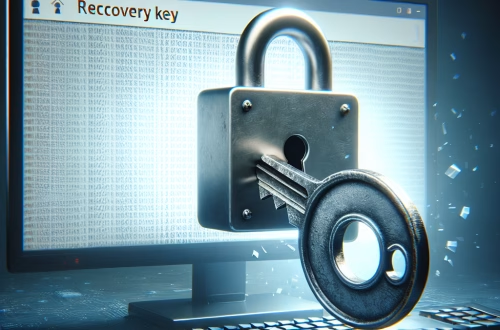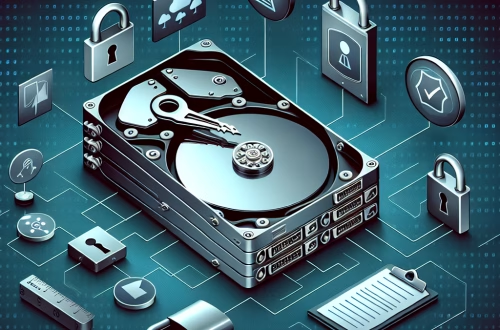Pros and Cons of BitLocker for Personal Use
Summary:
BitLocker is Microsoft’s full-disk encryption feature for Windows, designed to protect sensitive data by encrypting entire drives. For personal use, it offers strong security benefits but also presents challenges in usability and recovery. Pros include hardware-level encryption via TPM (Trusted Platform Module), seamless integration with Windows, and protection against unauthorized access. Cons include dependency on hardware compatibility, potential data loss without a recovery key, and slower system performance. Common scenarios triggering issues involve TPM failures, forgotten passwords, or firmware updates disrupting access.
What This Means for You:
- Immediate Impact: BitLocker may cause login delays or prevent system boot-up if authentication fails or hardware issues arise.
- Data Accessibility & Security: Ensure your recovery key is stored securely—without it, encrypted data may be permanently lost.
- System Functionality & Recovery: Regularly back up critical files and verify TPM functionality before enabling BitLocker.
- Future Outlook & Prevention Warning: Keep firmware and Windows updated to avoid compatibility issues, and consider alternative encryption tools for non-TPM devices.
Explained: Pros and Cons of BitLocker for Personal Use
Pros of Using BitLocker
1. Strong Encryption via TPM: BitLocker leverages the TPM chip to ensure pre-boot authentication, preventing unauthorized access. It uses AES-256 encryption by default, which is considered highly secure. This is ideal for protecting sensitive personal data in case of device theft.
2. Seamless Windows Integration: BitLocker is natively integrated into Windows Pro and Enterprise editions, requiring minimal setup. Users can enable it via the Control Panel or using PowerShell with the command:Enable-BitLocker -MountPoint "C:" -EncryptionMethod Aes256.
3. Automatic Unlocking (for Secondary Drives): BitLocker can automatically unlock secondary drives when the primary OS drive is decrypted, improving usability without compromising security.
Cons of Using BitLocker
1. Hardware Dependency: Full functionality requires a TPM 1.2 or later chip. Older or budget devices without TPM may need workarounds like USB startup keys, increasing complexity.
2. Recovery Key Risks: Losing the 48-digit recovery key renders data permanently inaccessible. Microsoft does not store this key, so users must back it up manually (e.g., to a Microsoft account or USB drive).
3. Performance Overhead: Encryption/decryption processes can slow down system performance, especially on HDDs or low-end SSDs. The impact varies but is noticeable during large file operations.
Common Issues & Solutions
Solution 1: Resolving TPM Errors
If BitLocker fails due to TPM issues (e.g., “TPM not detected”), reset the TPM via the TPM Management Console (tpm.msc). Ensure Secure Boot is enabled in the BIOS/UEFI, and update the firmware.
Solution 2: Using the Recovery Key
If locked out, enter the recovery key at boot (press Esc at the prompt). Retrieve the key from your Microsoft account, a USB drive, or printed backup. Never store the key on the encrypted drive itself.
Solution 3: Mitigating Performance Issues
For slower systems, disable BitLocker on non-critical drives or exclude system files from encryption. Use the command:Manage-bde -protectors -disable C: to temporarily pause encryption.
Solution 4: Data Recovery Without Key
Without the recovery key, data recovery is nearly impossible due to AES-256 encryption. Third-party tools are ineffective; prioritize preventative measures like secure key backups.
People Also Ask About:
- Can BitLocker be bypassed? No, not without the recovery key or password due to strong encryption.
- Does BitLocker work on Windows Home? No, it requires Pro, Enterprise, or Education editions.
- Is BitLocker safe from hackers? Yes, assuming proper authentication measures are in place.
- Can BitLocker encrypt external drives? Yes, via BitLocker To Go.
Other Resources:
- Microsoft’s BitLocker Documentation: Link
- NIST Guidelines on Disk Encryption: Link
Suggested Protections:
- Store recovery keys in multiple secure locations (e.g., printed copy + cloud).
- Update TPM firmware and Windows regularly.
- Use SSDs to minimize performance overhead.
- Test BitLocker on a non-critical drive first.
Expert Opinion:
BitLocker is a robust solution for personal data security but demands careful key management. Its reliance on TPM and Windows integration makes it less flexible than third-party tools like VeraCrypt, though more convenient for average users. Future updates may address performance gaps, but for now, it remains a trade-off between security and usability.
Related Key Terms:
- TPM (Trusted Platform Module)
- AES-256 encryption
- BitLocker recovery key
- Full-disk encryption
- Secure Boot
*Featured image sourced by DallE-3





